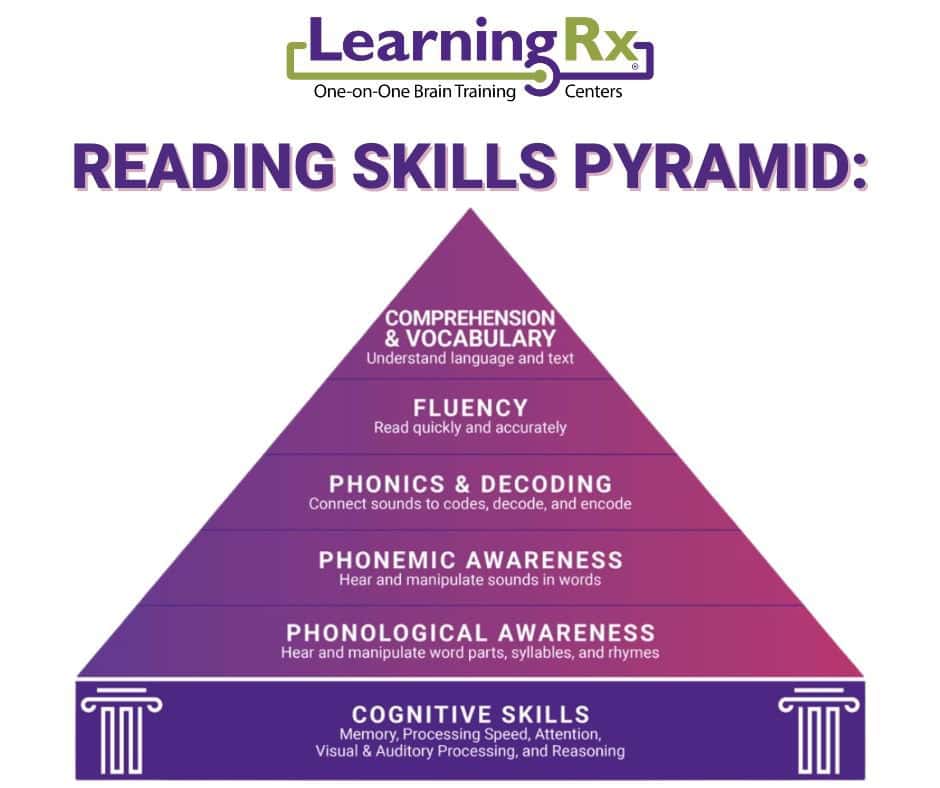Reasons Kids Struggle with Reading Comprehension
Reading comprehension is a critical task, and there can be many reasons kid struggle with reading comprehension, especially as they advance to the higher grade levels. For example, it is often said that up until 2nd grade, students are learning to read. Once a child enters third grade and beyond, they are now reading to learn. However, reading comprehension is a complex task. Reading is not enjoyable if you’re not comprehending the text. Many students who resist reading struggle with comprehension, which makes the issue worse, decreases motivation, and leaves them to struggle through the school year.
So why is reading comprehension often difficult, and what can you do to help build confidence in this area?
Why Reading Comprehension is So Hard for Some Students
When Do Reading Comprehension Struggles Start to Appear?
As mentioned, when kids are younger (until 2nd grade) reading comprehension issues often do not yet appear as the focus is on reading fluency. When “learning to read” switches to “reading to learn”, we hear from so many families with questions about “What happened?!”
Their child was doing well, but suddenly their grades suffer in subjects like social studies, science, and math (word problems)—all because their reading comprehension suffers. Reading is foundational for every subject (as well as many other areas of life beyond school), so struggles in this area begin to have far-reaching effects that can impact a child’s confidence and ability to live up to their full potential.
Some kids can get by in elementary school with weak reading comprehension thanks to accommodations and becoming good “guessers” when there are lots of pictures involved – especially if they have strong reasoning skills. However, when they reach middle and high school, you begin to see that they aren’t truly retaining or understanding what they read with more complex texts.
The Reading Skills Pyramid: The Foundations of Successful Reading Comprehension

This pyramid demonstrates how strong reading comprehension develops. If the foundation is not strong, this will cause students to struggle with higher-level comprehension skills. Below we lay out how each of these areas contributes to difficulties with reading comprehension:
Starting at the Bottom: Cognitive Skills
Most reading instruction and reading interventions begin by looking beyond this level (awareness of sounds); however, there is something even more fundamental to address first. Cognitive skills are the way information is processed and stored in your brain. When one of these skills is weak, no matter how good the instruction is or how many times you repeat academic content, the student will struggle with comprehension.
Key skills that impact reading include:
- Visual processing – impacts the ability process visual images and word recognition
- Auditory processing – this is the phonetic base of reading. Poor auditory processing impacts reading fluency and the ability to decode words and blend sounds.
- Working memory – enables a child to hold and organize the sounds in their mind while blending
- Processing speed – if this skill is low, it often causes reading fatigue as a child’s brain has to work harder to read fluently and quickly.
- Long-term memory – poor memory impacts a child’s ability to retain sight words or remember all the rules for non-phonetic words like “laugh” or “said”.
If you’re repeating reading instruction or hitting a wall when it comes to reading new words or comprehension, it’s critical to dig back to THIS level to make sure the foundation is solid.
If you want a quick assessment regarding your child’s cognitive skills, check out this FREE brain skills quiz!
Phonological Awareness
Phonological awareness is the next layer to understand when your child struggles with reading comprehension. A basic awareness of sounds, recognition of patterns and rhymes, and the ability to manipulate sounds in words is critical to become a fluent, confident reader.
Phonemic Awareness
Beyond individual sounds, phonemic awareness enables the recognition of word parts and the ability to accurately recognize and manipulate them. According to a 10-year NIH study, 88% of kids who struggle with reading share one common trait: issues with phonemic awareness.
For those seeking reading and reading comprehension help, at LearningRx, we start at the beginning with every student by identifying the root cause of the reading issues — and build skill to improve these areas. If this foundation building block – phonemic awareness – is not strong, students will continue to struggle regardless of the reading interventions they receive.
Phonics & Decoding
The next layer in learning to read is strong decoding skills. This is the ability to look at a word, connect the sounds, blend the sounds, and identify the correct word. There are many ways things can go wrong here, which is why a brain-based, root cause approach is critical.
Students can be good guessers by using context clues, pictures, or other strategies to get by at the lower grade levels, but as words become more complex, they lack the skills to decode, which impacts comprehension.
Fluency
The final layer enabling comprehension is the ability to read fluently. If a child’s reading is fragmented and not fluent, it’s much harder to get the big picture and understand what the text is saying. Most of the time, issues with fluency also stem from struggles with auditory processing, processing speed, attention, or poor decoding skills. When you build a solid foundation of these skills, fluency is more likely to flow naturally!
Reading Comprehension & Vocabulary
You’re at the last level. If your child has a solid foundation of each of these reading skills the final step is building vocabulary. Comprehension depends on being able to connect words with meaning, so if your child’s reading fluency is strong, but still struggles with comprehension, the issue may be related to:
- Vocabulary and exposure: have they just not been exposed to many of these words before? If they do not read often, this can contribute.
- Long term memory: do they struggle with word recall or drawing on past knowledge to interpret what they read?
- Visual processing: are the words just “words on a page” or does your child get vivid images of what they are reading (which significantly improves comprehension)?
If you’re unsure of your next step, a cognitive skills assessment at LearningRx in Woodbury can help you identify why your child struggles with reading comprehension. This 90-minute assessment provides insights as to which skills are strong and weak, and, in combination with your personal observations of your child’s struggles, can provide a clear path forward to make reading easier and more enjoyable for your child! Click here to get started today!







